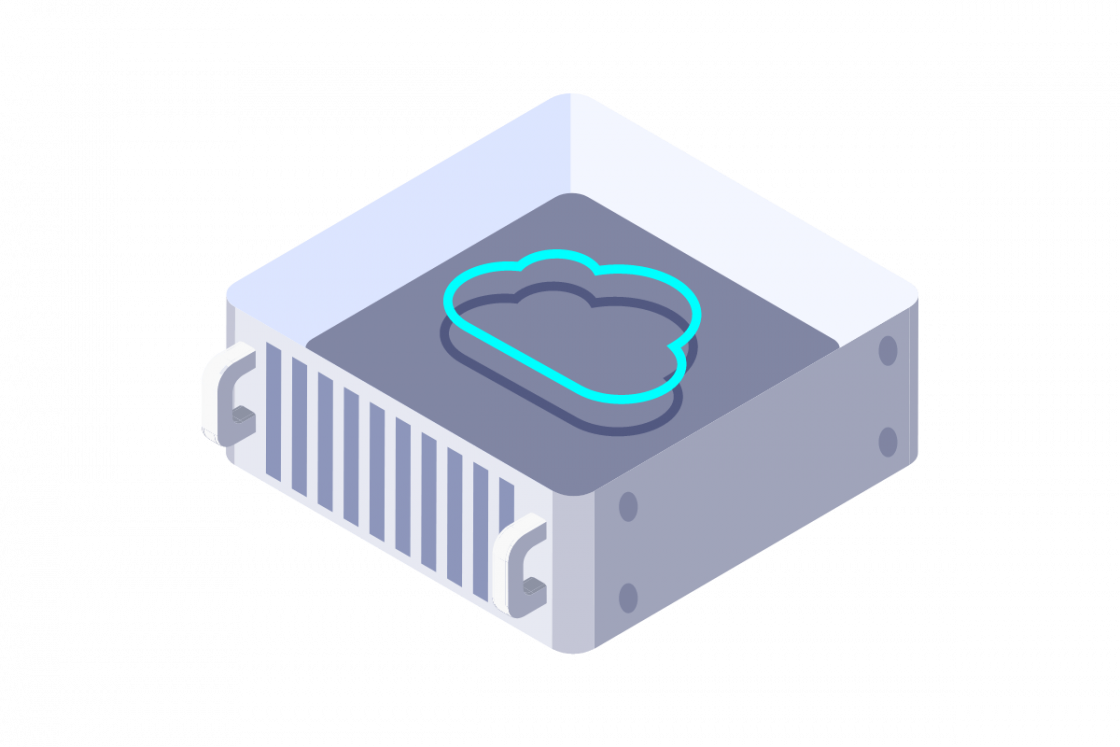What is DNS Security?
What does DNS security mean?
DNS security refers to measures that safeguard the Domain Name System (DNS), the internet’s phonebook. DNS translates website names like example.com into IP addresses, enabling devices to connect online. Without it, users would need to remember numerical addresses instead of simple, familiar websites names.

Why is DNS security important?
DNS security encompasses the tools, practices, and protocols needed to protect this critical infrastructure. Its primary goal is to shield both users and systems from cyber threats by ensuring that DNS queries and responses are confidential, complete, and authentic.
Maintaining the integrity, confidentiality, and availability of internet communication requires secure DNS. The improved online security and reliability it offers translates to a superior user experience linked to fast, smooth website loading. That’s why it’s crucial for a safer, more reliable connectivity.
Businesses require encrypted DNS to protect against attacks, and thanks to protocols like DNS over HTTPS (DoH), DNS over TLS (DoT), they can benefit from an extra layer of DNS security. These protocols authenticate and encrypt traffic to block unauthorised use or access, which not only protects businesses from malicious actors but also helps them comply with data protection laws. This way, they can ensure business continuity, and protect both their reputation and customer information.
Common DNS security threats
Data interception
Since DNS traffic is commonly sent unencrypted, it’s highly vulnerable to eavesdropping. Attackers can intercept these unencrypted communications to collect sensitive information, such as browsing history, user queries, or network activity, which can then be used for malicious purposes like profiling or launching targeted cyberattacks.
DNS spoofing (cache poisoning)
In a DNS spoofing, also known as cache poisoning, cybercriminals can alter DNS records to redirect users from legit websites to fake or malicious ones. For example, a malicious actor could redirect traffic meant for a bank’s website to a phony site that steals login details. This type of attack undermines online security by exploiting the trust website visitors place in DNS.
Man-in-the-middle (MITM) attacks
In a MITM attack, hackers intercept and tamper with DNS requests in real-time. By positioning themselves between a user and a DNS server, they can alter DNS responses to steal sensitive data or install malware. Cybercriminals often exploit security gaps on a massive scale, compromising the integrity and authenticity of the DNS. These DNS vulnerabilities underscore the urgent need for improved security and use of protocols, including DoH, DoT, and DNSSEC.
DDoS attacks
Distributed Denial-of-Service (DDoS) attacks target DNS servers by overloading them. The goal is to disrupt the servers’ normal function, thereby blocking valid DNS queries and causing downtime for websites, applications, or online services reliant on those servers. For businesses, a successful DDoS attack could be devastating— revenue loss, unhappy customers, and a tarnished reputation.
DNS tunnelling
DNS tunnelling is a sophisticated method that uses DNS query/response mechanisms to bypass conventional security protocols and exfiltrate sensitive data from a network. Cybercriminals encode malicious payloads or stolen data within DNS to reach remote servers without being detected. DNS tunnelling is particularly dangerous as it uses standard internet traffic, making it harder to identify and block through conventional security tools.
DNS hijacking
DNS hijacking is used by cybercriminals to illegally access a domain’s DNS settings, and divert users to harmful servers. Hackers can use DNS hijacking to trick users into visiting fake websites in order to steal their identity/information.
Typosquatting
This means registering domain names that look almost exactly like real ones, taking advantage of common typos (example.cm instead of example.com). A simple typo in a URL can send unsuspecting visitors to a fake website created to trick them or steal their data.
How to prevent DNS attacks
DNS attacks can wreak havoc on your online services and put sensitive data at risk. Here’s how to stay one step ahead:
Use DNS security extensions
Enable DNSSEC to authenticate DNS responses and prevent spoofing or cache poisoning attacks.
Implement firewall and DDoS protection
Use firewalls and DNS-based DDoS protection services to block malicious traffic and mitigate volumetric attacks.
Enable rate limiting
Configure rate-limiting settings on DNS servers to prevent abuse through excessive query requests.
Use secure protocols
Employ encrypted protocols, such as DoH and DoT to protect DNS queries from being intercepted.
Carry out regular security audits
Conduct regular audits and penetration testing to identify and fix vulnerabilities in DNS configurations.
Apply patch management
Keep DNS server software up-to-date with the latest security patches to reduce the risk of exploitation.
Monitor and log activity
Use real-time monitoring tools and maintain logs to detect unusual patterns and respond quickly to potential threats.
How to improve DNS security with encryption protocols
Encryption protocols are a highly effective method for enhancing DNS security and preventing data breaches.
To improve security and prevent DNS attacks, consider these proactive DNS security measures:
Use DNSSEC to authenticate DNS Records
DNSSEC protects DNS by adding cryptographic signatures to DNS records, ensuring their authenticity. This helps to deter cybercriminals from tampering with DNS queries/responses or sending visitors to fake websites. DNSSEC improves DNS security by validating the integrity of queries/responses to ensure they are unchanged from origin to destination.
Implement DoH and DoT for encrypted communication
DNS encryption with protocols (DoH or DoT) makes DNS communication private and tamper-proof. DoH encrypts DNS queries within regular web traffic using HTTPS, while DoT leverages Transport Layer Security (TLS) to shield DNS transmissions for unauthorised access and interference.
Monitor DNS traffic regularly
Continuous monitoring helps detect anomalies, such as DNS tunnelling or excessive query spikes. With proactive analysis, threats can be detected and mitigated before they cause harm.
Secure configurations for DNS servers
DNS security can be bolstered by restricting server access to authorised users only, using rate limits to prevent abuse, and keeping server software patched. This can help minimise vulnerabilities, or strengthen DNS defences.
Manage and protect your domain names
Keep your domains safe by enabling DNSSEC; this uses digital signatures to verify DNS responses. For robust protection and control, register and manage your domains through trusted providers. Learn more about domain names and DNS security with our detailed guides—protect your online presence with expert insights!
What is DNSSEC?
Domain Name System Security Extensions, or DNSSEC, is a protocol that defends the DNS by adding cryptographic signatures to DNS records. The goal is to maintain data authenticity and prevent tampering, hacking, and redirection to fake websites.
How does DNSSEC work?
DNSSEC adds digital signatures to DNS records for security. These signatures verify the authenticity of DNS queries/responses and send them to valid and trusted websites. As a fortified mechanism, it protects data, prevents cyberattacks, and more critically, connects only to legitimate sources.
What is a DNS server?
A DNS server is like a translator for the web, helping you connect with the exact place you’re trying to reach online. When you type a web address into your browser, it doesn’t understand words like we do. Instead, it needs numbers to locate things. DNS servers translate these addresses, so you can access websites without needing to remember complex strings of numbers.
There are two types of DNS servers, recursive and authoritative, each with specific roles. An analogy will better illustrate how they work; imagine the internet is a massive library, and you’re looking for a specific book. The process of finding it involves two key roles: a helper who searches for the book (recursive server) and the librarian who knows exactly where it is (authoritative server).
Difference between recursive and authoritative DNS servers
The recursive server begins the process by searching for the requested website. If the information isn’t readily available, it queries external sources, systematically checking different sources until it locates the required data. Once it finds the answer, it forwards it back to the requester. This server only retains the information temporarily, just enough to fulfil the query.
The authoritative server is the ultimate source of truth. It holds the definitive information and doesn’t need to seek input from other sources. The recursive server’s search concludes when it reaches the authoritative server, which provides the precise details, including the exact address of the website.
How recursive and authoritative servers work within a secure DNS
Recursive servers are searchers—their role is to gather information. Authoritative servers are the source of truth as they provide final, verified answers. Together, they ensure a speedy and reliable process when you visit a site. One finds, the other confirms, and you get where you need to go without ever noticing the complex system at work.
Why DNS security is important for your business
Uninterrupted access to online services and the protection of valuable business data hinges on a comprehensive and protected DNS system. Cyberattacks can trigger a chain reaction—compromised online security, eroded user trust, and ultimately a damaged brand/business reputation with long-term consequences. Limiting network vulnerabilities are benefits of this system, achieved by:
Protecting against cyberattacks
By blocking malicious sites, enhanced DNS security protects against phishing and malware. These protections give both users and businesses safer and more reliable internet access. And thanks to DNS layer security, they both benefit from an additional layer of defence. It acts as a shield and protects internet infrastructure by meticulously filtering and monitoring DNS queries. This proactive approach detects and neutralises threats before they can compromise systems.
Ensuring DNS integrity
Secure DNS protects against data theft and website hijacking during online transactions, securing sensitive information, including passwords and credit card numbers. DNS security combines encryption protocols and filtering to block malicious domains used for phishing, malware, and data theft.
Supporting uninterrupted website traffic
Using a protected DNS minimises downtime, resulting in more stable online access for businesses. It protects both business operations and customer trust, thanks to encrypted routing. Additionally, you can ensure uptime through DNS monitoring, which detects and mitigates anomalies, securing the overall network infrastructure.
OVHcloud and DNS security
OVHcloud prioritises the security and reliability of your DNS infrastructure. We use advanced protocols like DNSSEC, with strong encryption, to protect your domains and online presence. OVHcloud fully supports DNSSEC for secure domain management. Find out more about .

Unparalleled DNS resilience
Our DNS subdomain and anti-DDoS configuration options are designed to handle high loads and mitigate such threats. Proactive threat mitigation and real-time monitoring keep your DNS servers running no matter what.

DNSSEC for added protection
Enhance the authenticity of your DNS records. This protocol protects OVHcloud’s DNS against malicious tampering and redirects, or unauthorised changes, ensuring the integrity of your DNS records.

Reliable solutions for all businesses
OVHcloud provides reliable DNS security solutions tailored to businesses of all sizes. Explore our web hosting solutions to build a consistent online presence, or enable DNSSEC support for trusted DNS management. Boost website reliability and reinforce user trust in your online services.